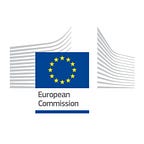EU Crisis Response (Part 3 of 4)
A series on the results from the first year of emergency support within the European Union
For several decades the European Union has delivered humanitarian aid to a large number of natural and man-made disasters outside its own territory. In contrast, the emergency response within the Union was limited to the coordination of voluntary in-kind assistance between member states.
All this changed in spring 2016 when the European Council and Parliament provided the European Commission with hundreds of millions of euros to temporarily support the national responses to the refugee and migration crisis. At the peak of the crisis in summer 2015, 10 000 men, women and children arrived in Greece in one day.
But what are the results after one year of operation in Greece? This series takes stock of the impact of EU emergency support funding thus far and focuses specifically on its four key operational priorities, namely (i) shelter, (ii) cash assistance, (iii) education, and (iv) support to the most vulnerable groups in Greece.
Catch up on chapters one and two before reading chapter three below.
CHAPTER 3: ENSURING A DECENT EDUCATION FOR EVERY REFUGEE CHILD
Education is a key element for better integration. Education gives children the chance to secure their future. The simple act of going to school reinforces a sense of normality for children whose lives have been turned upside down.
“I had to stop my education last year, but now I’m back to school,” says 10-year-old Hamza with a smile. Hamza was forced to leave his home and school behind in Deir ez-Zor, Syria. He is now staying with his family at an accommodation centre in Greece and attends a local primary school.
“I hope to become a pilot one day. I speak English but I have to study more.” When asked about school, Hamza replies, “Going to school is always nice!”
For young refugees education is essential. Over 4% of the EU humanitarian budget is currently dedicated to education in emergencies, which by the end of 2016 had benefited more than 3 800 000 girls and boys in 47 countries around the world. Yet, education in emergencies remains one of the most underfunded sectors of humanitarian aid.
Education is one of the most powerful ways to protect children from all forms of violence. It can restore a sense of normality and safety, and provide children with important life skills. Education plays a role in addressing the psycho-social needs of children and adolescents affected by trauma and displacement. It is one of the best tools to invest in the long-term future of children especially in a complex context such as the EU refugee crisis where a population on the move becomes stranded.
“I want to learn Greek, English and maths.”
The majority of refugee children in Greece come from places where schools services have been massively affected or even destroyed; countries such as Afghanistan, Iraq, Syria and Pakistan. On average, these children have been out of school for over two years, while many others haven’t even had the opportunity to set foot in a classroom.
The provision of education to all children is the responsibility of each Member State within the EU. In Greece, EU emergency support funding is designed to fully support the strategy of the Greek Ministry of Education: to give access to education for all refugee children, through afternoon classes organised for them in the public Greek schools. Supporting the roll-out of this strategy, the Commission has allocated €2.8 million to the International Organization for Migration (IOM) to ensure the safe transportation of children to and from school. Funding has also allowed IOM to equip children with school kits and sports equipment.
Access to education enables children like Asad to pursue the ambitions of every child his age. Twelve-year-old Asad arrived in Greece from Idlib, Syria, only nine months ago but already he speaks impressively good Greek.
“I want to be a doctor and a footballer,” he says. Sitting next to him, his 11-year-old sister, Amal, also dreams of becoming a doctor, although she’s afraid of needles. The two children are staying at an accommodation centre of Thermopylae together with their parents and three siblings. They can hardly wait to go to school. “I want to learn Greek, English and maths,” says Asad.
In addition, the Commission is supporting the delivery of complementary non-formal education activities to over 9 000 children residing in camps and urban centres.
Non-formal education takes place both within and outside educational institutions and caters to people of all ages. It does not always lead to certification. Non-formal education programmes are characterised by their variety, flexibility and ability to respond quickly to new educational needs of children or adults. They are often designed for specific groups of learners such as those who are too old for their grade level, those who do not attend formal school, or adults.
Some examples of non-formal education funded by the Commission include basic maths and literacy lessons, and classes in Greek and English and mother tongue languages. These are implemented by long-standing EU humanitarian partner organisations Save the Children, the Norwegian Refugee Council, UNICEF and Terre des Hommes. In 2016, a total of €10.5 million were allocated to provide non-formal education and to support access to formal education in Greece.
Learn more about EU Humanitarian Aid in Greece.
Coming soon…
